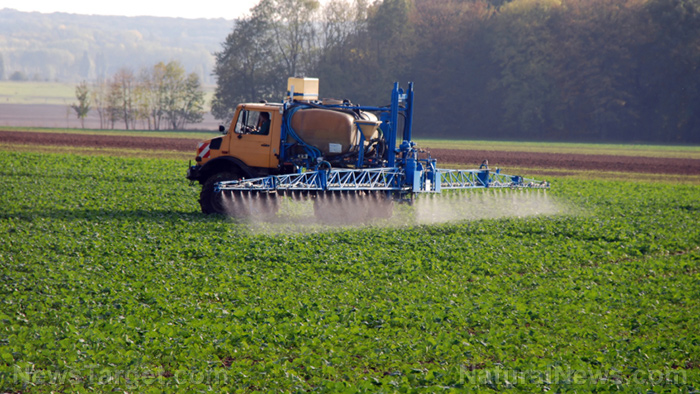Market analysts: In-transit goods will eventually make it to store shelves
11/11/2021 / By Ramon Tomey

BMO Capital Markets analysts led by Simeon Siegel claimed that items trapped in supply chain crunches will eventually make it to store shelves, albeit on discounted prices.
They said the problem lies in transporting finished products to retail establishments, not in making goods from scratch. “The issue is actually less of [a] lack of supply, and more of an inability to get the supply to stores,” the BMO analysts said.
“That means that [products are] slowly inching their way across the globe. Unfortunately, that will likely lead to mistimed floor sets as products miss their intended season – likely triggering promotions and clearance as compelling product sells out immediately. Slower-moving product necessitates clearance, beginning with the emergence of outperformers and laggards into next year.
“Going forward, managements continue to point to freight and labor-cost headwinds persisting, which should continue to keep inventory levels lean. [If] we are right about the aforementioned distinction between a supply-chain slowdown versus shutdown, it is simply a matter of time before late product hits the floors and begins to drive up promotions.”
Meanwhile, analysts from financial services firm Wells Fargo said promotions have begun as early as October. Companies usually launch promotions during the holidays to entice customers, they added.
“We are beginning to see an earlier ramp of consumer shopping and holiday messaging – which has started during the last two weeks of October – while goods are still on shelves, with the question being the degree of sales left on the table [for the fourth quarter of 2021], given the availability of supply.”
“With holiday messaging ticking up, we expect that [the] current move toward more of a promotional normal is in part an effort to appeal to early holiday shoppers looking to get ahead of inventory shortages and supply-chain constraints into [the fourth quarter of 2021].” (Related: Collapse imminent? Food suppliers admit they can’t keep store shelves stocked amid supply chain disruptions, worker shortages.)
According to Wells Fargo analysts, the impact of supply constraints should begin to increase as 2021 winds down.
Companies race to put items on shelves to match consumer demand
The National Retail Federation (NRF) said companies are racing to get items onto store shelves as fast as they can. More than 70 ships have been waiting at the Los Angeles and Long Beach ports, causing a backlog of imported products at near-record levels.
“Dock workers are unloading ships as fast as they can, but the challenge is to move the containers out of the ports to make room for the next ship,” NRF Vice President for Supply Chain and Customs Policy Jonathan Gold said in a statement.
“We need better empty return procedures and more chassis, truck drivers, rail capacity and warehouse workers to keep the system moving. Retailers have enough inventory on hand to make sure shoppers won’t go home empty-handed this holiday season. But there are still items sitting on the docks or waiting on ships that need to make it to store shelves and online sellers’ warehouses.”
Some retailers get creative in concealing empty shelves. (Related: Grocery stores now using PHOTOS of food to fill empty shelves like something ripped straight out of North Korea.)
Conservative news website ZeroHedge posted some examples of supermarkets hiding the shortages by rearranging products. One picture showed individual boxes of macaroni and cheese in single file lining multiple shelves to give an impression of the grocery being full. Another picture taken at a Safeway branch showed fried onions, black beans and apple juice arranged in single file to fill up shelves.
A video posted on Twitter showed folding lawn chairs neatly arranged on shelves at a department store. Another video on the social media platform showed well-stocked grocery shelves, but a closer look revealed empty shelves covered with print-outs of groceries.
Collapse.news has more articles about the supply chain issues affecting different products.
Sources include:
Tagged Under: Bubble, chaos, Collapse, Consumer Demand, discount, empty shelves, food supply, grocery, holiday demand, market crash, prices, products, shipping, shortage, supply chain, supply chain issues, transportation
RECENT NEWS & ARTICLES
COPYRIGHT © 2017 MARKET CRASH NEWS

















